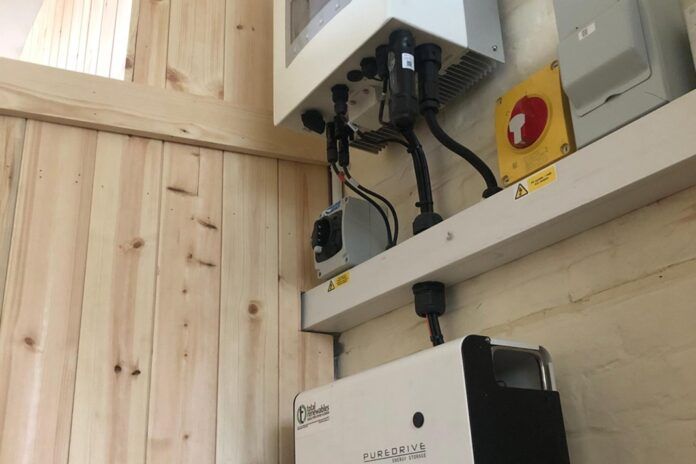
Battery storage installations in homes will receive a boost by being zero-rated for VAT from 1 Feb, as will co-contracted works for ground source heat pumps.
The HM Treasury announced in December last year that zero-rated VAT would be introduced on all battery storage installations until 2027, not just those that are installed at the same time as solar panels as was previously the case. This will dramatically cut the cost of battery technology for homeowners by 20%, a statement said.
The battery storage sector saw strong growth in 2023, it noted. At the end of 2022, the first year that MCS certified battery installations were registered, there were 50 companies certified for installation. By the end of 2023 there were more than 900 certified installers, and the annual installation count had increased by more than 1700%.
The MCS Foundation, which has campaigned for the zero-rating of VAT for battery storage as well as other renewable technologies, said that the zero-VAT will support the continued growth of the battery, ground-source heat pump and renewables sector.
Nigel Huddleston MP, Financial Secretary to the Treasury, said: “Tackling climate change is vital for the UK’s long term economic prosperity and our energy security. Thanks to the Windsor Framework, we can introduce innovative measures like zero-rated VAT on heat pumps across the UK, helping to cut costs and improve energy independence for homeowners.
“The UK has a world leading track record of delivery on decarbonisation, and the results speak for themselves as we’ve reduced emissions by 48% since 1990, faster than any G7 country.”
David Cowdrey, director of external affairs at the MCS Foundation, added: “Battery storage will play a vital role in reducing bills and decarbonising our homes. The zero-rating of VAT which comes into effect today will support more households to install batteries and is a positive step forward.
“In order to ensure continued growth in renewables being installed in UK homes, the Treasury should be planning to extend the zero-rating of VAT until 2030 to really support these new renewable businesses.”
